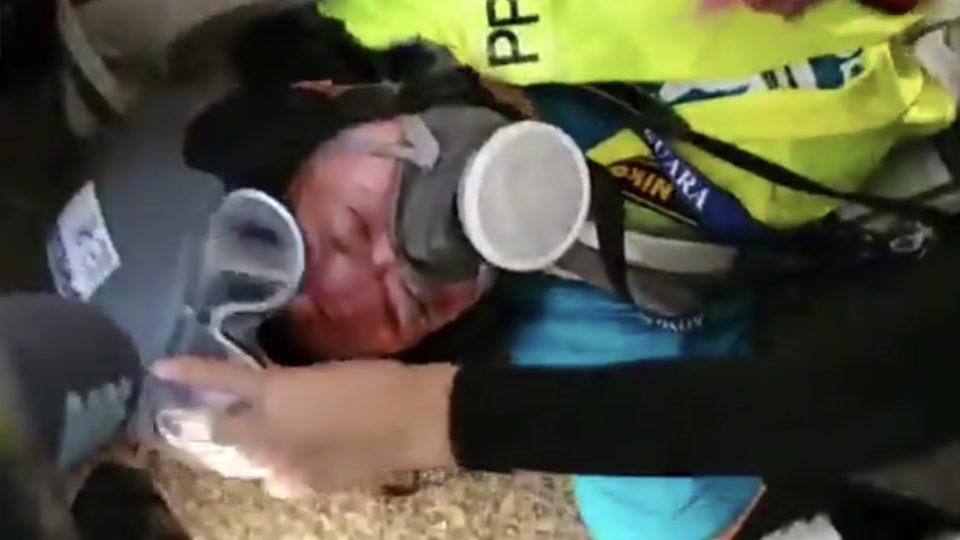A Hong Kong police representative told the High Court today that the force had identified an officer who fired a less-lethal round around the time and place where an Indonesian journalist was blinded in one eye by a police projectile. However, he added that the force was reluctant to disclose the officer’s identity for fear of prejudicing any future proceedings stemming from the incident.
Journalist Veby Mega Indah, an associate editor for the Indonesian-language Suara Hong Kong News, was shot in the right eye with what was believed to be a rubber bullet while livestreaming a protest in Wan Chai on Sept. 29.
She filed a criminal complaint against the unnamed officer, and subsequently sought a court order demanding the police disclose information about the officer who fired the shot, including his identity and any documentary evidence related to the incident, in order to pursue a private case against the officer, HK01 reports.
But a lawyer for the police force said in today’s hearing that although they have identified an officer who fired a shot at the time and location of the incident, police cannot determine whether his shot was the one that caused Indah’s injury.
Judge Russell Coleman, however, noted that the issue of liability was not the subject of the day’s hearing, which solely revolved around securing the officer’s name, according to RTHK. He went on to set a date for another hearing on Feb. 17, suggesting he would make a ruling at that time.
Videos of the incident posted online — including Indah’s own livestream — show officers retreating from a footbridge packed with journalists as protesters advance.
As a literal parting shot, one officer stops on the stairs going down from the footbridge, aims his shotgun into the press pack, and fires a round at a distance of just a few meters. A rubber bullet can be seen bouncing to the ground, and Indah collapses.
Indah, 39, permanently lost vision in her right eye as a result of the injury.
Outside the High Court today, Indah said she was pleased with the judge’s recognition of the case’s urgency in setting the hearing for next month. Due to a six-month time limit on such prosecutions, any potential case against the individual officer would need to be filed by late March.





